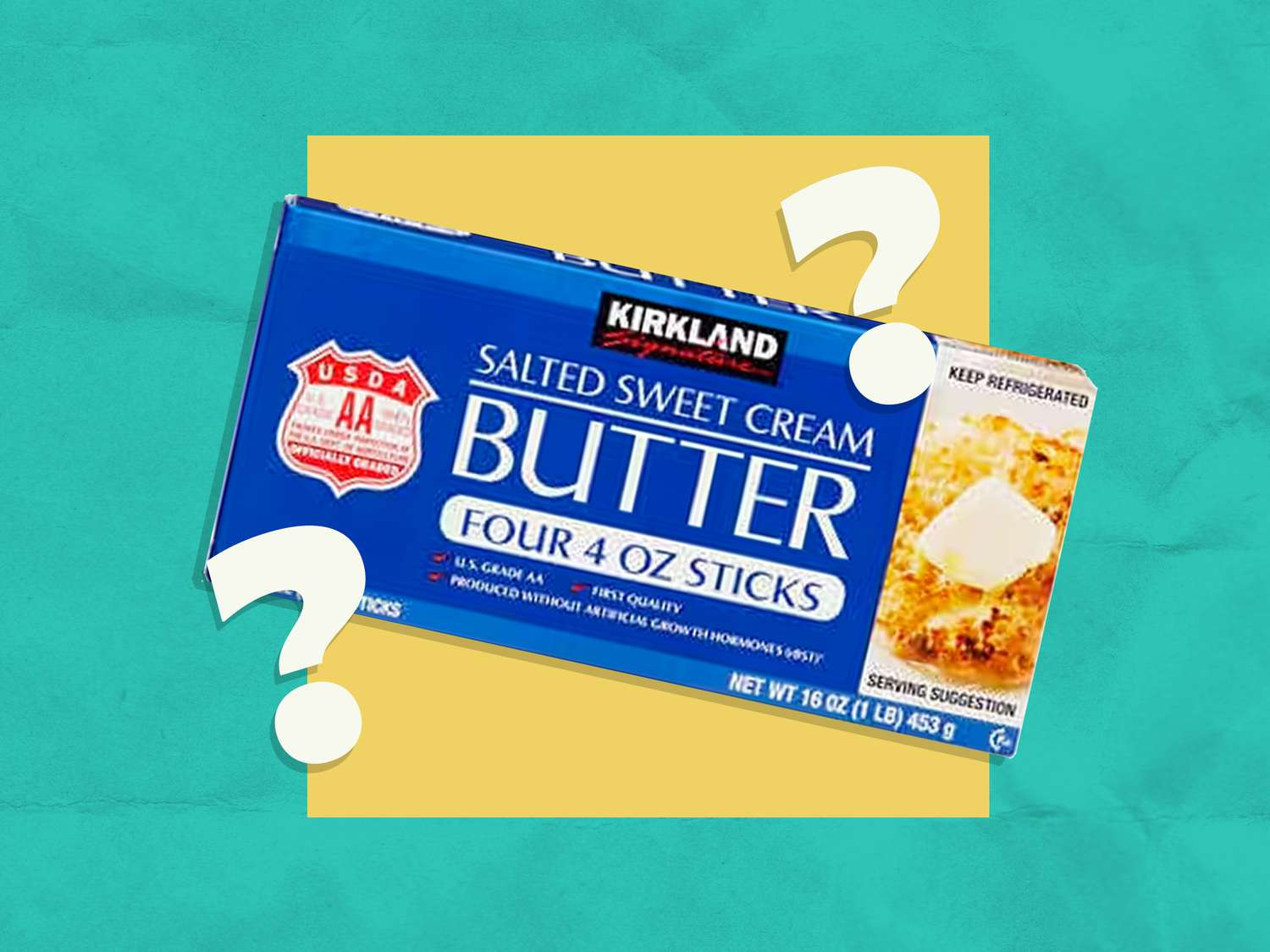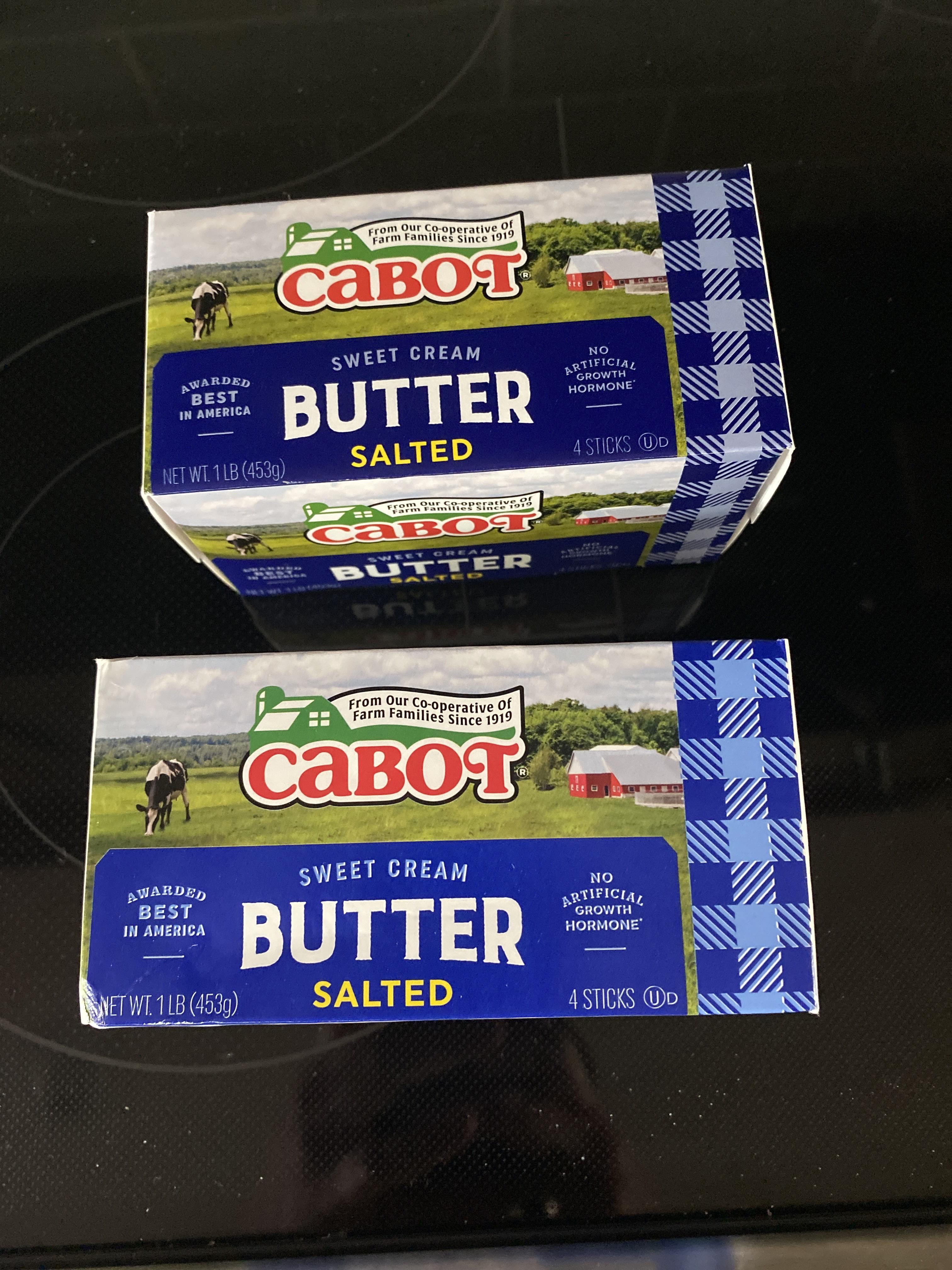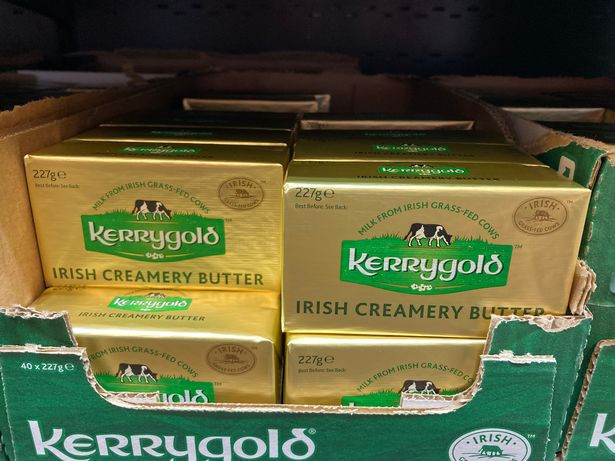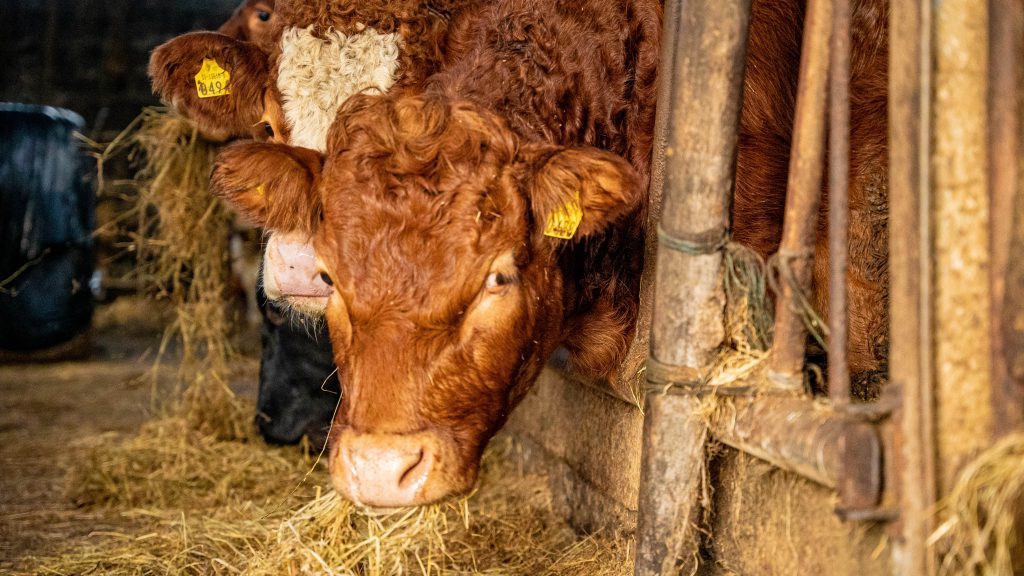Costco was forced to recall nearly 80,000 pounds of butter because the label failed to mention that the Kirkland Signature butter contains milk. Both a salted version of the Kirkland Signature butter (32,400 pounds) and the unsalted (46,800 pounds) were affected. Though the label included cream in the ingredient list, it did not note that milk was an allergen for the product.
The FDA has not issued a press release regarding the recall; it is unclear if anyone had suffered any allergic reactions to the butter. These butter products were reportedly distributed to Costco locations in Texas and have "best by" dates ranging between February 22, 2025 and March 29, 2025. So, double check the butter in your fridge or freezer if you believe that your butter is affected. For additional information, check the FDA's details.
The recall quickly became a social media trend, with users being vocal about the fact that customers need to be informed that butter is indeed a dairy product, or that its packaging requires language reading “contains milk.” One social media user joked, “Can y’all please safely dispose of it at my house? I have a lot of holiday baking to do.”
Continental Dairy Facilities Southwest LLC recalled more than 79,000 pounds of Costco Kirkland Signature butter last month because the packaging may not have an allergen disclaimer about milk. The recalled 46,800 pounds of Kirkland Signature Unsalted Sweet Cream Butter and 32,400 pounds of Kirkland Signature Salted Sweet Cream Butter “list cream, but may be missing the Contains Milk statement,” according to the Food and Drug Administration (FDA). Distribution of approximately 2,100 cases of butter occurred in Texas, the agency said.
For the Kirkland Signature salted sweet cream butter, the best-by dates were Feb. 23, 2025, for one of the lots and March 29, 2025, for the other, according to the FDA. Meanwhile, the four lots of the unsalted butter had Feb. 22, Feb. 23, March 22 and March 23 best-by dates. Each recalled product had four 4-ounce sticks within it.
The Importance of Proper Food Labeling
Companies have to label food products that have milk, eggs, fish, shellfish, tree nuts, peanuts, wheat, soybeans and sesame under the law, according to the FDA. The recalls for potentially not having the notice about milk, an ingredient that some social media users suggested should be common sense to consumers, came roughly a month before the FDA labeled them “Class II,” a classification that the FDA said indicates a product “may cause temporary or medically reversible adverse health consequences or where the probability of serious adverse health consequences is remote.” The agency noted Continental Dairy Facilities Southwest’s recalls of the Costco Kirkland Signature butter was voluntary and did not involve any press release.
The Impact of the Recall on Costco
Costco has sold products under its popular private-label brand since the mid-1990s. In its most recent annual report, the warehouse retailer said Kirkland Signature items are “offered at prices that are generally lower than national brands, and help lower costs, differentiate our merchandise offerings, and generally earn higher margins.” Costco generally has a roughly 4,000-item selection, including Kirkland Signature products and items from other brands, at its 891 warehouse locations.
What Consumers Should Do
The Food and Drug Administration has not told consumers what to do with the purchased product. However, typically during recalls, customers are encouraged to discard the product or return it to their place of purchase.
The Butter of It All: A Dairy Dilemma
Many social media users were quick to mock the recall, pointing out that shoppers shouldn’t need to be warned that butter contains milk. Kristen Meg, an X user, wrote: “As someone with serious dietary restrictions, I am sympathetic to this issue but I have to say…this is pretty ridiculous. We all know butter contains milk.” And another X user added: “Can y’all please safely dispose of it at my house? I have a lot of holiday baking to do.” The FDA listed the recall as Class II in November, meaning it is “a situation in which use of, or exposure to, a violative product may cause temporary or medically reversible adverse health consequences or where the probability or serious adverse health consequences is remote.” Milk can contribute to some of the “most serious allergic reactions in the United States,” according to the Centers for Disease Control and Prevention. The Independent has reached out to the FDA and Costco for more information.



















